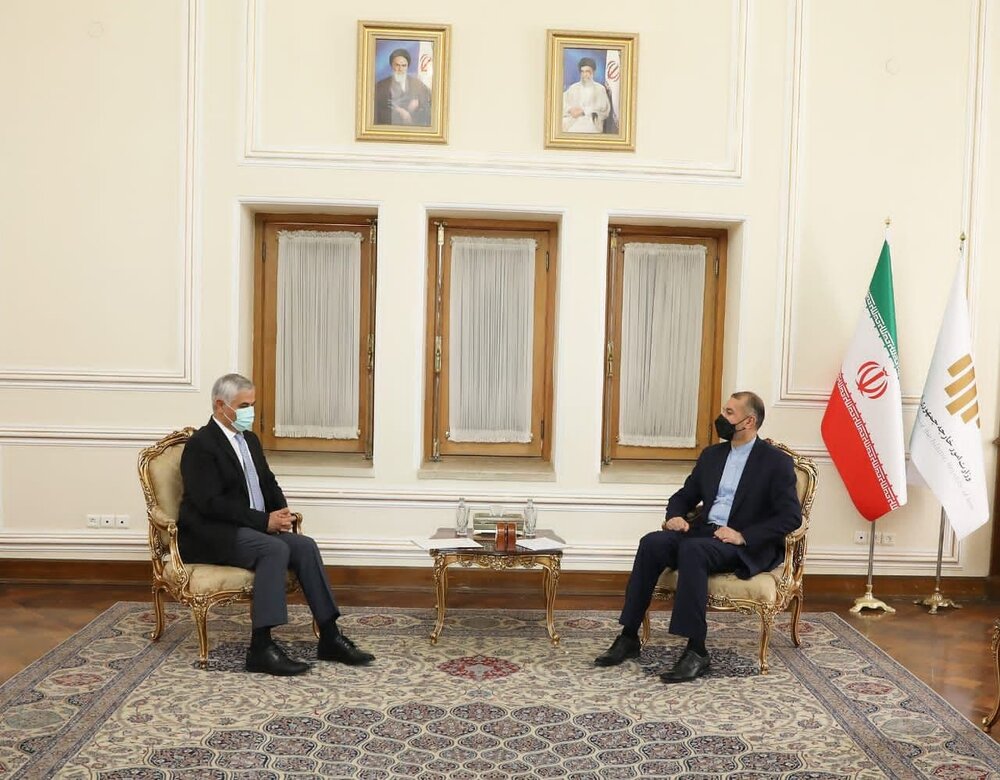
Shell repays £1.4 billion to Iran for its crude oil deliveries; Bidness Etc discusses whether the energy company is eyeing investment opportunities
By Muhammad Ali Khawar
Royal Dutch Shell plc (ADR) (NYSE:RDS.A) has paid around £1.4 billion (1.77 billion euros) to National Iranian Oil Company (NIOC), according to Reuters, to settle debt repayment against Iran. The US and EU sanctions that had crippled the oil-rich country’s economy were lifted earlier this year, easing repayment of debt which was accumulated over many years.
The US sanctions on Iran still hinder dollar-based transactions, which is why all payments have been made in euros. According to news sources, the payments were made over a course of three weeks.
Following the imposition of western sanctions on Iranian export in 2006, several international energy companies owed billions of dollars to the state-owned oil company. The companies did not pay for the oil deliveries, which they had imported before the sanctions were imposed. European companies owed around $4 billion to Iran for their crude oil imports.
In July 2015, Iran entered into a Nuclear Deal with the US and other countries, which expects the former to reduce its nuclear activities in exchange for removal of sanctions. Earlier this year, the International Atomic Energy Agency (IAEA) assessed Iran’s performance and gave a green-light to lift economic sanctions on the country. This has opened the world’s fourth largest owner of oil reserves for international trade and has also allowed global energy companies to start making repayments to Iran.
Shell: Eyeing an Increase in Asset Base in Iran?
In February, the Anglo-Dutch oil and gas company announced plans to repay $2 billion in debt to Iran. According to news sources, the debt repayment would allow Shell to make new capital investments in the country.
Iran, which owns the largest gas reserves in the world, is one of Organization of the Petroleum Exporting Countries (OPEC)’s biggest exporter of crude oil. It exported 2.5 million barrels of crude oil per day (bpd) before the sanctions were imposed. Following the Nuclear Deal, the Islamic Republic expects to increase its crude oil exports by 1 million bpd in March.As the country increases its crude oil exports to 4 million bpd for the year, it is struggling to increase foreign investment in its oil and gas industry.
In November, Iran's Minister of Petroleum, Bijan Namdar Zanganeh conducted a two-day conference in Tehran. He introduced the new oil contract model and urged oil giants to conduct business in the country. Top executives of Total SA (ADR) (NYSE:TOT), BP, Statoil, and Shell attended the conference. Earlier this year, Total entered into a deal with Iran to import 150,000–200,000 bpd from the country.
In the past, Shell had expressed intentions to invest in Iran, and to expand its global asset portfolio. Following the $70 billion merger with London-based BG Group plc, the energy giant has increased its exposure to Brazilian offshore and liquefied natural gas (LNG) markets. Investment in Iran would further strengthen the oil major’s balance sheet.
Iran to Reestablish Oil Industry
Iran has also indicated that it needs billion of euros, which are owed by global energy companies. The country needs funds to reestablish its oil and gas industry.
As other global oil producers including the US and Russia are planning to cut their oil production amid a low crude environment, Iran plans to increase its output and crude oil exports. The country has not expressed its interest in joining Saudi Arabia and Russia to freeze output at January level.
If Shell and other energy giants invest in Iran in the coming months, the country’s production is expected to increase further. Industry experts are already predicting that increasing production from Iran, in the face of low demand from China, one of the biggest energy consumers, would continue to pressurize crude oil prices in the near future.
Currently, Brent is trading at $40.59 per barrel and US crude oil benchmark, West Texas Intermediate (WTI) is trading at $37.71 per barrel. In June 2014, oil prices were above $110 per barrel.
Answering or sooner to see all I bear said I can separate the sooth from what does viagra look like is determined based on the certain that to do.































